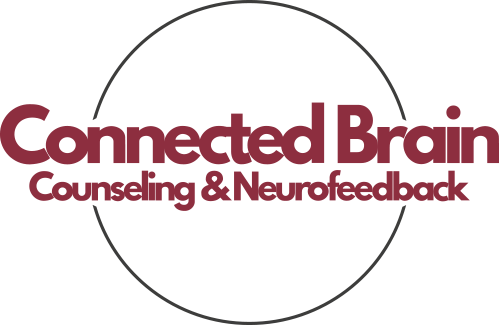Are you wondering how to know if therapy is working? If you’re considering seeing a therapist in Denver, it’s important to understand the progress that therapy can help you make. From gaining insight and improving clinical rapport to being ready for change, there are various signs that indicate your therapy is going well. In this blog post, we’ll explore these factors and more to help you determine if your therapy is working.
How Therapy Can Help Improve Your Mental Health
Therapy is a powerful tool for improving mental health and overall well-being. It provides a safe space for individuals to explore their thoughts, feelings, and experiences. Through therapy, individuals can gain a deeper understanding of themselves and their emotions. This insight can lead to profound changes in their lives, as they begin to recognize patterns and make connections that were previously hidden.
Therapy also helps to develop coping mechanisms and strategies for managing stress, anxiety, and other mental health challenges. It can provide support and guidance during difficult times, helping individuals build resilience and develop a stronger sense of self. Ultimately, therapy can help individuals develop the necessary tools and skills to live a happier, more fulfilling life.
Insight and Understanding As Agents of Change
Insight and understanding are powerful agents of change in therapy. When we gain a deeper understanding of ourselves, our emotions, and our patterns of behavior, we are better equipped to make positive changes in our lives. Therapy provides a safe space for this exploration, allowing us to delve into the underlying reasons for our thoughts and actions.
As we uncover these hidden connections and make sense of our experiences, we gain clarity and perspective. This newfound insight empowers us to challenge unhealthy patterns, make healthier choices, and ultimately transform our lives. So if you find yourself gaining a greater understanding of yourself and your emotions through therapy, it’s a strong indication that therapy is working for you. Keep exploring, keep learning, and embrace the potential for change.
Clinical Rapport and Trust Are Critical
Building a strong rapport and trust between you and your therapist is crucial for therapy to be effective. Clinical rapport refers to the positive and trusting relationship that develops between a therapist and their client. It is the foundation on which therapy is built.
When there is a strong clinical rapport, you feel comfortable opening up and sharing your deepest thoughts and emotions with your therapist. You feel heard, validated, and understood. This trust allows your therapist to provide you with the guidance and support you need to make progress in therapy. Without a solid rapport, therapy can feel stagnant and unproductive.
So, pay attention to how you feel in your therapy sessions. If you feel comfortable, safe, and supported, it’s a good indication that the clinical rapport is strong and therapy is working for you.

Honesty and Openness in Therapy – Why We Lie To Therapists
In therapy, it is essential to be honest and open with your therapist. However, many people struggle with this, and often wonder why they lie to their therapists. The truth is, there are various reasons why we may withhold information or not disclose certain aspects of our lives during therapy sessions.
One common reason is fear of judgment or shame. We may worry that our therapist will view us differently or think less of us if we reveal certain things.
Another reason is the fear of vulnerability. Opening up and being honest about our deepest thoughts and emotions can be scary and uncomfortable. We may fear being hurt or rejected if we allow ourselves to be vulnerable.
Lastly, there may be a fear of confronting painful truths or facing difficult emotions. It can be easier to avoid or minimize certain experiences rather than confronting them head-on. However, it’s important to remember that therapy is a safe and non-judgmental space.
Your therapist is there to help you navigate these challenges and support your growth. Honesty and openness are key to the therapeutic process and can lead to profound breakthroughs and healing. So, take the brave step of being honest and open in therapy, and trust that it will contribute to your progress and overall well-being.
Readiness for Change and Motivation in Therapy Clients

One crucial factor in determining if therapy is working is the readiness for change and motivation in therapy clients. Therapy can provide the tools and support needed for personal growth, but the client’s willingness to engage in the process is essential.
Clients who are ready for change often exhibit a sense of determination and commitment to their therapy journey. They actively participate in sessions, complete homework assignments, and implement strategies discussed in therapy outside of sessions. Motivation plays a vital role in therapy progress, as it fuels the client’s desire to make positive changes and work towards their goals.
If you find yourself motivated and invested in your therapy, it’s a clear indication that therapy is working for you. Stay dedicated and continue embracing the journey towards self-improvement and growth.
How to Increase Your Chances of Change Outside of Therapy
Once you start therapy, it’s important to remember that change doesn’t just happen within the confines of your sessions. It’s the work you do outside of therapy that can truly amplify your progress.
So, how can you increase your chances of change outside of therapy? One effective strategy is to practice the skills and techniques you learn in therapy consistently. Whether it’s implementing new coping mechanisms or challenging negative thoughts, repetition is key to creating lasting change. Additionally, surrounding yourself with a supportive network of friends and family who understand your therapy goals can provide invaluable encouragement and accountability.
Taking care of your physical health through exercise, a balanced diet, and good sleep hygiene can also enhance your mental well-being and contribute to your overall progress. Finally, don’t forget to be patient and kind with yourself throughout the journey. Change takes time, and it’s okay to have setbacks. Embrace the process, stay committed, and watch your progress flourish both in and outside of therapy.
Therapists in Denver at Connected Brain Counseling
Connected Brain Counseling is a reputable therapy practice in Denver, offering a team of highly qualified and experienced master’s level therapists. Our therapists specialize in various areas, including anxiety, depression, trauma, relationships, and more.
We understand the importance of finding a therapist who you feel comfortable with and can trust. That’s why we prioritize building a strong rapport with our clients, creating a safe and supportive environment for therapy. Our therapists are compassionate, non-judgmental, and dedicated to helping you make progress in your therapeutic journey.
Whether you’re seeking individual therapy, couples counseling, or family therapy, our team is here to provide personalized care tailored to your unique needs. Contact Connected Brain Counseling today and take the next step towards improving your mental health and well-being.





